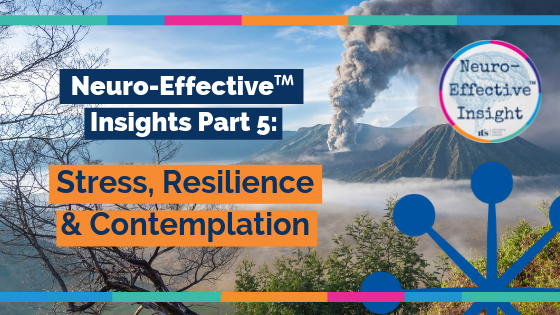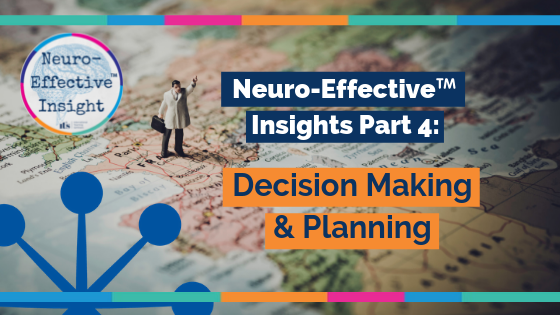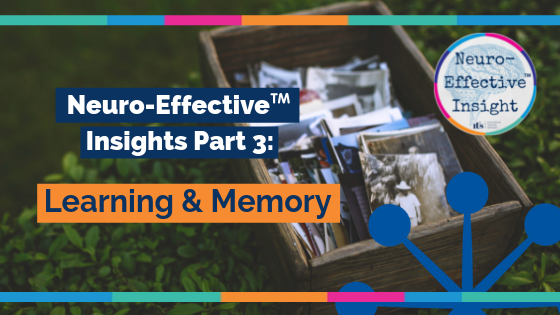When you search ‘NLP Practitioner Course’ Mr Google delivers a lot of choice. This long list can be difficult to wade through and to discern between.
However, the process of shopping around is an important step, because when you are investing in yourself like this financially and personally, you want to make sure you are choosing the right one for you.
But how do you choose between the options?
To help you make your decision, we have put together a list of things to be mindful of when navigating the NLP training landscape.
Delivery format: Online or Face-to-Face
Online training existed before the pandemic, but boomed during lockdown. Large function spaces were swapped for our own living rooms. Many training providers found that it was a good substitute to in-person training. It also meant that the ‘show could go on’ during a time when people needed these type of skills the most.
But what is online training like and how does it compare?
Online Training
Some of the benefits include:
Front row experience: Online training creates a ‘front row’ like experience from the comfort of your home.
Better connected: The online experience can be a more personal and intimate way of practicing exercises. This is possible with the benefit of ‘Breakout Rooms’ in Zoom, which is a virtual private area that is in a separate ‘space’ from the main meeting.
Fewer distractions: Some people even favour the online experience, because there are fewer distractions than the face-to-face equivalent. Since it gives you the flexibility of training locations, meaning that you can go to a quiet place of your choosing and pop in your headphones.
Save time and money: There are no travel costs with online training. The result? More accessibility financially and geographically.
Face-to-Face or In-person Training
Is there magic in the air or is it just the air-con blowing?
For anyone who has done any kind of training face-to-face, will have experienced the energy a room full of people has. This can be both magical and overwhelming – even at the same time.
Due to the nature of the NLP, the training room tends to have a buzz in the air alive with activity. This can make for an energising and inspiring experience.
How do you know what’s right for you?
There are pros and cons to both types of training experiences. So whether you’re against commuting or have ‘Zoom-fatigue’ questioning these factors will help you find the right choice for you.
What about ITS? Like with most other training providers the pandemic moved us to an online training format. Prior to this our programmes ran face-to-face in London. We are now reviewing what we do next. Watch this space.
Real time vs E-learning
There are two online training format distinctions:
Live training:
Live training is hosted by someone in real time. This experience has set training times/days and therefore should be diarised in your schedule. It can feel more like an event, like you are tuning into your favourite show on live TV.
It has many benefits, with some including:
Instant response: You can ask questions in real-time and get a response in the moment.
Live demonstrations: NLP is about modelling, so a good trainer will demonstrate different NLP exercises as they teach. The trainer will take the role of the practitioner and you as a course participant could be selected to experience the exercise.
Instant feedback: The learning is in the doing and a real-time format will allow for you to practice. In any good practitioner course will be the time allocated for you to try the exercises as you learn. This is done with other course participants in either pairs or groups and will give you instant feedback and experience.
E-Learning:
E-learning consists of pre-recorded videos in an online library format. It is often self-paced. Which means you can watch the videos around your own schedule and when best suits you.
It also means that you are not accountable to anyone but yourself – which can or cannot work for some people when it comes to learning new things.
To give you an example of E-learning, Udemy offer a course called ‘100% Official NLP Practitioner (Assoc) Cert iGNLP™ / ABNLP‘. Which at the time of our research was priced at £59.99, which would be considered as a low price point product.
How do you know what’s right for you?
With both formats it’s important to consider what type of training experience you are getting from the options available. You should decide if the learning style and depth of training is what you’re looking for.
Some might say that you can’t substitute learning and practicing in real-time as you learn. And we would be inclined to agree with this!
What about ITS? Our training happens live in real-time and is currently delivered online. There are also videos available on our online platform ‘ITS Connect’ for you to extent your learning if you wish to in-between modules.
Duration
Like people, NLP Practitioner courses come in many forms.
An effective way to try NLP on for size and to experience a trainer to see if you like them, is to attend an introductory event. These can be anything from a few hours to a day in length.
Then for full NLP practitioner courses, you have some choices to make:
Intensive style format:
This includes courses that run between 3-7 days consecutively in an intensive style format. This can be for people who are looking to learn NLP skills quickly.
It can be quite a full-on experience, where you are fully immersed into NLP teachings and exercises. Which can be good for those who like to cram a lot into a short space of time. Cue flash backs to past uni days when deadline were looming…
Modular based:
This is where the syllabus is split across weeks or months and is often modular based.
This type of format allows for the learning to sink in between modules. Building on your foundation of knowledge as you progress through the modules.
What about ITS? Our ‘NLP Practitioner Programme with Neuroscience’ is a 12-day NLP Practitioner course comprising of six 2-day modules over 5 months. Typically our programme starts in September and finishes in January the following year.
Trainers – who’s who…
NLP was developed over 50 years ago in the early 1970s in America and as the industry matures trainers have increased globally.
This means that there are lots of different types of trainers to choose from, in terms of age, nationality and experience. Even their training style and delivery of tone might matter to you, after all you will be in their presence and listening to them for an extended period.
How do you know who’s right for you?
It’s best to do some research on a trainer and to watch videos of them in action. This will help you decided if you resonate, respect, and gravitate to them as a trainer. Ask yourself do I align with their values and feel-good listening to them.
What about ITS? ITS Founder, Ian McDermott has dedicated his life to giving people the tools to deal with the challenges they face and the necessary skills to create their own solutions. A prolific author and thought leader in the field of leadership, innovation and collaboration. Ian is renowned for making change safe.
Certification & Accreditation
It can be easy to get confused with all of the different terminology used by training providers when referring to certification and accreditation.
This is mostly because there is no single regulating body for NLP. Which means there are no set names to represent an even standard/level across the board, like with the distinctions used in education such as GCSE, BTEC or BA.
As a result of this, there are quite a few different organisations who have coined various titles which all pertain to certification and accreditation.
How do you know what training provider is right for you?
Whichever NLP Practitioner course you are drawn to, make sure you understand what their ‘Certification & Accreditation’ means to you and whether if meets your objectives of learning NLP.
For more information of different NLP certification bodies head to the ANLP (an independent umbrella organisation for NLP Professionals) here >
What about ITS? Our programme is accredited by the International Coach Federation (ICF) and the Association for NLP (ANLP).
Choice is better than no choice.
As the NLP presupposition goes ‘choice is better than no choice’. Meaning it’s good to have options because then you can exercise CHOICE.
Finding the right NLP Practitioner course for you will depend on how you like to learn and which trainer you are drawn to most.
To find the right fit for you, do your research on the training provider and look at what messages the trainer communicates. Then make you choice.
Happy discovering and learning!





Leave A Comment